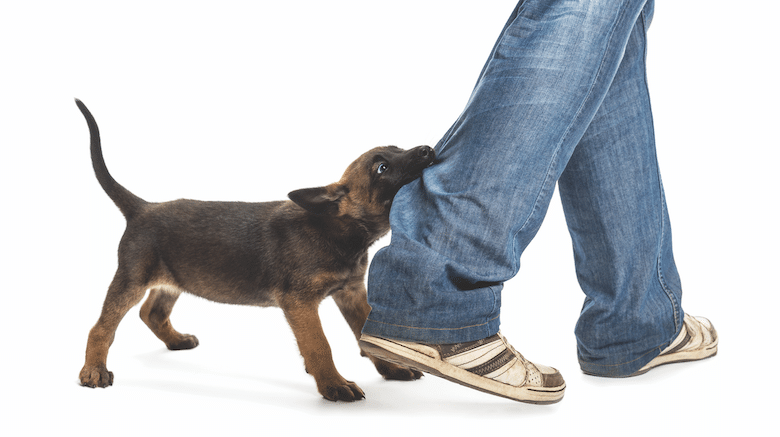The post How to Treat Injuries from Dog Fights by Dr. Catherine Ashe appeared first on Dogster. Copying over entire articles infringes on copyright laws. You may not be aware of it, but all of these articles were assigned, contracted and paid for, so they aren't considered public domain. However, we appreciate that you like the article and would love it if you continued sharing just the first paragraph of an article, then linking out to the rest of the piece on Dogster.com.
Nothing can ruin a lovely walk with your canine friend like a dog fight. Unfortunately, even with careful attention, it can happen. It’s important to know how to avoid these accidents and also when to take your dog in for veterinary care.
Prevention is best
First, know your dog and how she interacts with others. If she is fear aggressive, then a leash should be used at all times. If your dog is friendly, she should be well-trained with a strong recall. This way, when off-leash in dog parks and while hiking, your dog will come when called. If your dog does play with other dogs, intervene if too much roughhousing or harassment occurs. This can prevent a fight before it starts.
Sometimes, despite knowing our dogs, a fight breaks out. If this is the case, never get between two fighting dogs. Sharp, sudden noises (like an airhorn), hosing the dogs down or throwing a blanket over the fighting dogs are the best, safest approaches.

Photo: GlobalP | Getty Images
Treatment for bites
Any time your dog is in a fight, a thorough examination is necessary. Many bite wounds are small and difficult to see, especially on breeds with long, thick hair. Wounds are often the “tip of the iceberg.” It isn’t uncommon for a small puncture wound to hide a significant amount of damage to the subcutaneous tissues and muscles. This is especially true if any shaking and tearing occurred during the injury.
If puncture wounds are found, wash them gently with soap and water if your dog will tolerate it. Even the most docile dog may bite when in pain, so proceed with caution.
Gently pat the wounds dry with a towel and cover lightly until you can see your vet. In the event that any wounds are bleeding profusely, wrap in a clean towel and apply pressure until you can reach a veterinary office ASAP.
Dog bites are always at risk for infection, so if there are any puncture wounds, antibiotics may be warranted. In some cases, this can be done topically with medications such as triple antibiotic ointment; in other cases, oral antibiotics and pain medications are needed. Any time a puncture wound is found, consult with your veterinarian before attempting home treatment.
Wounds can look small but be very painful. Localized swelling and infection can lead to discomfort and the need for pain relief. Do not use over-the-counter medications.
While it may be easy to reach for acetaminophen or aspirin, these medications are not buffered for a dog’s GI tract and can be toxic. Never administer or apply medications without speaking to your veterinarian first.
Get to the vet stat
In some situations, immediate care is required. Do not wait to seek help if your dog:
- has extensive wounds
- has heavy bleeding
- has dirt contamination of wounds
- appears to be in shock (labored breathing, pale gums, weakness)
In some cases, wounds are bad enough to require IV fluids to stabilize shock, IV antibiotics and surgical repair. This is particularly the case when bigger dogs have attacked smaller dogs.
When in doubt, keep your dog on a leash, avoid interacting with unknown dogs and make sure your beloved pet is up to date on all vaccines.
Featured Image: alexei_tm | Getty Images
Read Next: How to Train a Dog to Walk on a Leash
The post How to Treat Injuries from Dog Fights by Dr. Catherine Ashe appeared first on Dogster. Copying over entire articles infringes on copyright laws. You may not be aware of it, but all of these articles were assigned, contracted and paid for, so they aren't considered public domain. However, we appreciate that you like the article and would love it if you continued sharing just the first paragraph of an article, then linking out to the rest of the piece on Dogster.com.
Poop4U Blog
via www.Poop4U.com
Dr. Catherine Ashe, Khareem Sudlow



No comments: